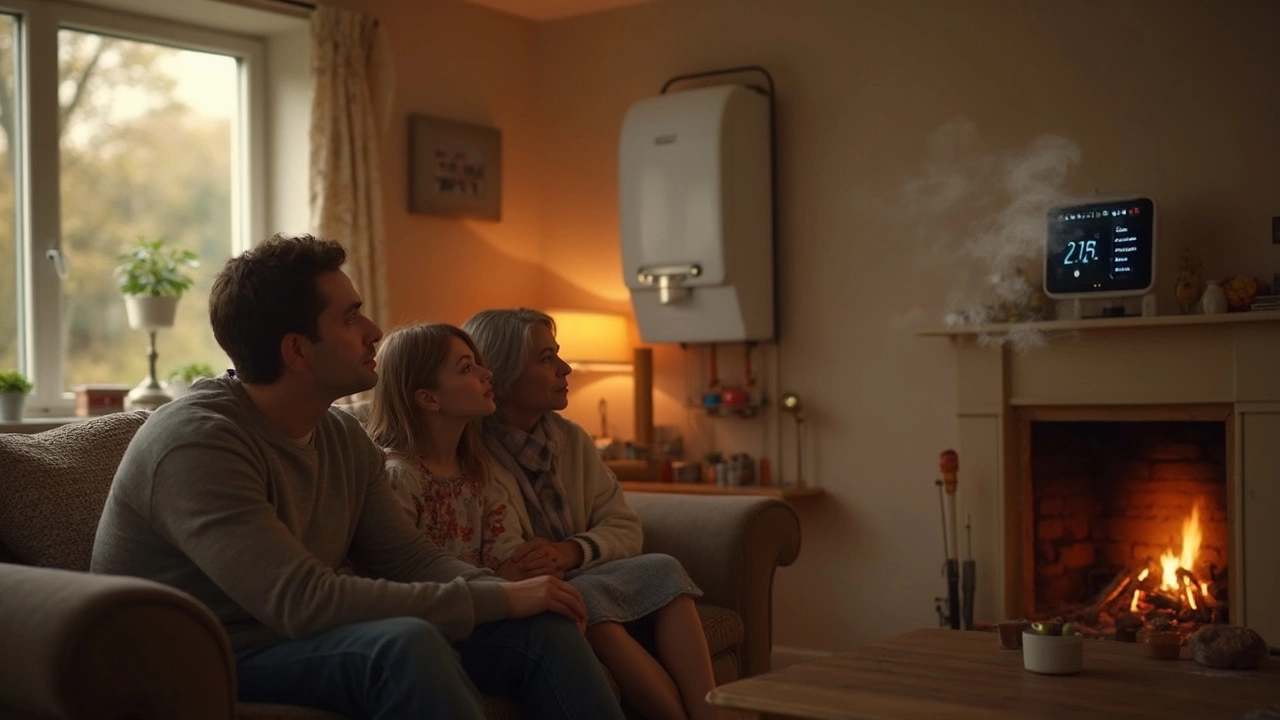Heating Issues? Simple Fixes for Your Boiler, Hot Water Heater and More
If your shower feels like an ice bath or the radiator takes forever to warm up, you’re probably dealing with a heating issue. It’s easy to panic, but most problems have a clear cause and can be sorted out quickly. Below, we break down the most common signs, give you step‑by‑step DIY tricks, and tell you exactly when it’s time to call a professional.
Common Signs Your Heating System Is Struggling
First, notice the symptoms. A boiler that won’t fire up, a hot water heater that keeps tripping the reset button, or an oven that won’t heat are all red flags. In many cases you’ll hear strange noises – gurgling, rattling, or a steady clicking – which usually points to air trapped in the system or a failing pump. Leaks are another giveaway; even a small drip around the boiler or water heater can lower pressure and shut the whole system down.
Temperature inconsistencies are also common. If the upstairs rooms stay chilly while the ground floor is toasty, you might have an imbalance in your radiators or a blocked pipe. For electric appliances, a heating element that’s burnt out will cause the unit to stay cold or heat unevenly, a problem you’ll often spot by a burnt smell or a visible break in the element.
DIY Steps to Tackle Simple Heating Problems
1. Check the power and switches. Before you open anything, make sure the appliance is plugged in and the circuit breaker hasn’t tripped. For boilers, the thermostat should be set above the current room temperature and the pressure gauge should read between 1 and 1.5 bar.
2. Reset the hot water heater. Many water heaters have a reset button on the thermostat. Press it once, wait a minute, then try again. If it trips repeatedly, sediment buildup or a faulty thermostat is likely at fault, and a professional should look at it.
3. Bleed radiators. Air pockets cause cold spots. Use a radiator key to open the bleed valve until water starts to flow, then close it tightly. This simple step can restore even heat across the room.
4. Inspect the heating element. For ovens or electric hobs, disconnect the power, remove the element, and look for visible cracks or scorching. A multimeter set to “ohms” should show continuity; if not, replace the element.
5. Clean the burner and flue. Dust and debris can block gas flow in a boiler or water heater. Turn off the gas supply, remove the burner cover, and gently brush away buildup. A clear flame indicates proper combustion.
If any of these steps feel uncomfortable, or if you notice gas smells, persistent leaks, or the system still won’t fire, it’s time to call in a qualified technician. Trying to force a repair without the right tools can cause more damage and be unsafe.
Regular maintenance is the best defence against heating issues. Schedule an annual boiler service, flush your water heater every two years, and keep the area around appliances free of clutter. Simple habits like checking the pressure gauge monthly and wiping down burners after each use can extend the life of your equipment and keep your home comfortably warm.
Bottom line: most heating hiccups start with obvious signs and easy fixes. Identify the symptom, run through the quick DIY steps, and don’t hesitate to call a pro when the problem persists. With a bit of awareness, you’ll keep the heat on and avoid costly emergency calls.
When Should I Worry About My Boiler? Spotting Trouble Early
0 Comments
Not sure when to be concerned about your boiler? This article breaks down the red flags you can’t ignore, from weird noises to fluctuating heat. Learn when a quick DIY check is enough and when you need a pro—plus, useful tips to keep your boiler in better shape and avoid surprise breakdowns. Whether your heating is acting up or you just want peace of mind, you’ll get practical advice to stay one step ahead. Don’t let a small problem snowball into a costly emergency.
Read MoreBoiler Problem Diagnosis: Simple Steps to Identify What’s Wrong
0 Comments
This guide helps you figure out boiler problems by breaking down common warning signs and how to check basic functions. Get straight answers on leaks, strange noises, no heat, and other headaches. Learn how to judge if you can fix it yourself or if it’s time for a professional. Save money and stress by understanding your boiler before you call for help. Be more confident the next time your heating system acts up.
Read More
